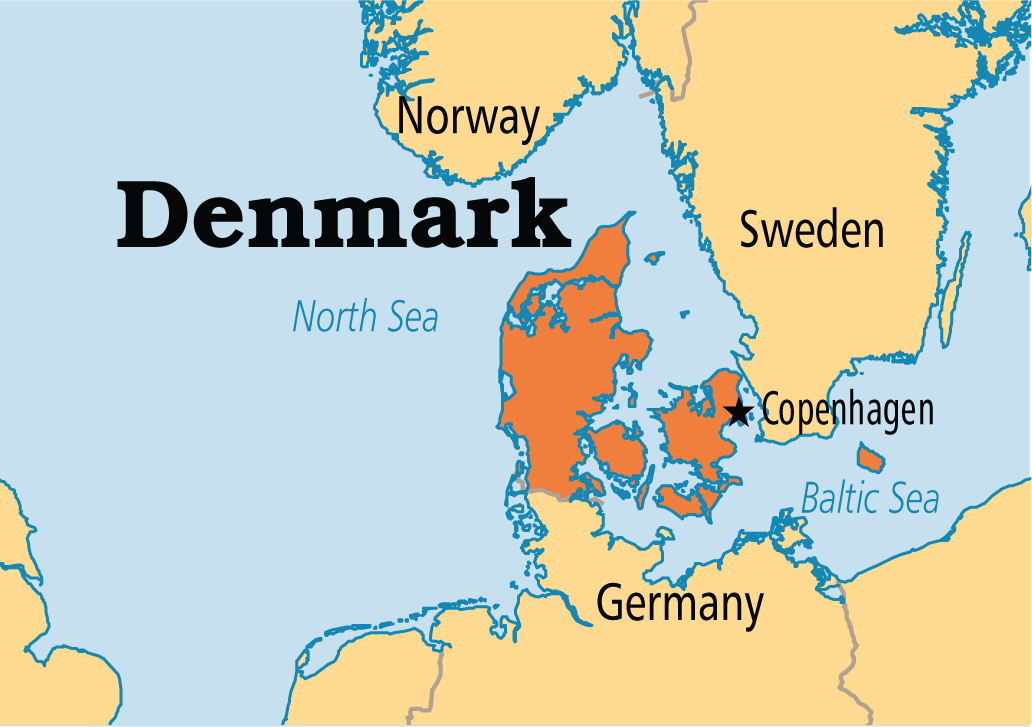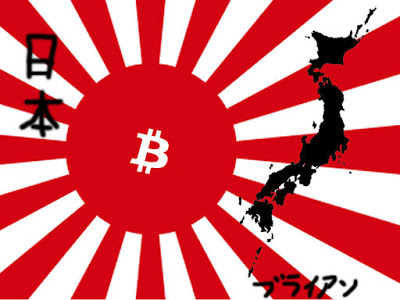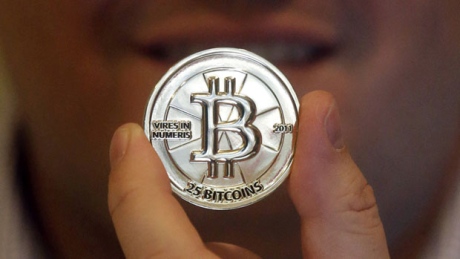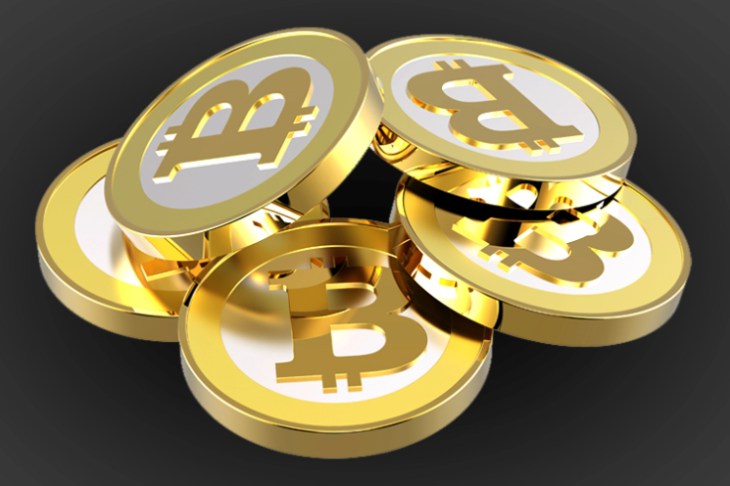
As explained by a major IT agency for the European Union, financial companies should be careful to blockchain cybersecurity issues if they want to implement the blockchain.
The European Union Agency for Network and Information Security (ENISA), in fact, published a new report on the distributed ledger, highlighting the security issues that large companies might experience if they decide to adopt blockchain tech.
Key management, data privacy and smart contracts are some of the most important topics discussed in the ENISA report.
This is the first time the agency, created back in 2004, published a report on the technology. Last year, ENISA published a glossary on its official website.
On the page there was an overview of blockchain, saying “it is too soon to tell whether blockchain will live up to its promise”.
According to this newest report, financial businesses should give high attention to security issues.
Udo Helmbrecht, executive director of ENISA, explained in an official statement:
“Cybersecurity should be considered as a key element in the blockchain implementation by financial institutions.”
Code review and mechanisms for accessing to distributed networks should be important, commented the report. Also it highlights that banks and financial institutions should think about the blockchain cybersecurity challenges of handling digital asset wallets.
Click on the link below to read the full copy of the report:
WP2016 3-1 4 Blockchain Security by CoinDesk.
Open your free digital wallet here to store your cryptocurrencies in a safe place.

France Bitcoin tests have been revealed by the French Central Bank last week.
The Banque de France published a press release on Friday where it talks about its technology tests for use in the management of SEPA Credit Identifiers.
According to the French central bank, one of the key participants in this project is the Caisse des Dépôts et Consignations, and the Paris-based startup called Labo Blockchain.
The project began in July 2016 and culminated in October with the creation of prototypes for creating and managing SEPA Credit Identifiers.
The central bank also explained how meetings were held with stakeholders as the project moved forward, indicating that more details about the project will be revealed in 2017.
This is not the first time a central bank test the distributed ledger.
A few months ago, in fact, central banks in Japan, Sweden and Singapore launched similar projects.
Also, earlier this month, the US Federal Reserve published its first major research paper on the ledger you can read here.
Credits: Coindesk.com
Open your free digital wallet here to store your cryptocurrencies in a safe place.

Today I want to talk about the Denmark Bitcoin position and regulation.
Denmark is a place where its citizens relie on cash less than most other European countries, so it is thinking about digitalizing its national currency.
To do so, the Danish central bank wants to release its own digital currency based on a blockchain and it will be called e-krone.
Governor of the Danish central bank, Lars Rohde. commented that the government doesn’t want to print its own fiat currency in the future.
So Rohde is looking for outsourcing the production of Danish krone and wants to replace it with its independent financial system based on the distributed ledger technology: the e-krone.
In an interview conducted by Bloomberg, Rohde explained that the Danish central bank effort is not related to the blockchain technology or alternative fintech technologies:
“We’re not preoccupied with the technology because we know that issue well. Cash and notes are not an alternative to electronic payments. We went beyond that many years ago.”
Also, the most important problem the central bank is worried about is the anonymity of the e-krone.
At the moment, the Danish bank believes that the e-krone will have a serial number embedded onto its Blockchain, so the government will be able to track the currency thanks to a transparent ledger.
However, another issue about the anonymity of a currency are the predictable complaints by the Danish citizens who expect to be provided with financial freedom and privacy.
“All money held by Danes will eventually end up in the central bank in the event of a financial crisis, and we will indirectly end up doing a bailout because we become a creditor to all the banks.”
But the distributed ledger tech is not applicable to the concept of the Danish central bank, as structurally it cannot be established for the central bank as network moderator.
To read more news about Denmark Bitcoin position, click here.
Open your free digital wallet here to store your cryptocurrencies in a safe place.

Japan Bitcoin Regulation will take place in 2017 and it wants to drop an 8% sales tax on Bitcoin purchases.
This move will take effect in July 2017, according to a document published by CoinDesk.
Although the proposal has yet to be approved by senior Japanese government, an annual tax document written by the ruling Liberal Democratic Party and the Komeito party was revealed today. Thanks to this document now we know more details on the proposal suggested back in October by the Ministry of Finance and the Financial Services Agency.
The tax remains in place today.
If approved by the Cabinet, the plan will institute a period of grace in June 2017, with the tax exemption becoming official the following month.
The document just released is the result of discussions among government stakeholders first reported by the regional news service called Nikkei.
Local startups have already responded positively to this Japan Bitcoin regulation.
CEO of exchange service Quoine, Mike Kayamori, commented that the plan to drop the sales tax was expected, but it represents a good message to the cryptocurrency community.
Kayamori explained to CoinDesk:
“It’s a huge relief for us. Customers don’t have to pay tax for each transaction. Hope this becomes standard practice.”
This move follows a very busy year for Japan on the exchange front, as the government decided to request registration for all the companies that handle bitcoin sales within the Japanese country.
Discussions around exchange regulation began last year when government ministers tried to obtain information from exchange services.
Also, a deliberations took place last year because of the collapse of Mt Gox, a bitcoin exchange imploded in 2014, causing hundreds of millions of dollars lost by the exchange users.
Document originally shared by CoinDesk.com on Scribd. Unfortunately it is available only in Japanese language.
Open your free digital wallet here to store your cryptocurrencies in a safe place.

The uncertainties about the relationship Russia Bitcoin were finally disappeared.
In an official document published a few days ago on November 29th Russia’s federal tax service expressed its new position regarding the legality of Bitcoin use and transactions.
In fact, the document finally explained that there is no legal prohibition of digital currencies in Russia.
For almost three years it was not clear if the Russian authorities wanted to ban or accept Bitcoin and introduce several penalties.
Somewhere during this period, the Russian ministry of finance commented about the possibility of a four years imprisonment introduction for people involved in the Bitcoin use.
Also, even bank officials sentenced to seven years in prison and banned from holding certain positions.
However, Russian authorities changed their idea and gave the ministry of finance a new directive to write a law on Bitcoin.
The federal tax service’s document affirms the legality of Bitcoin and indicates that all trading operations related to Bitcoin and any other digital currency are to be considered as foreign and external securities.
In fact, this document essentially defines the buying and selling of Bitcoin and other cryptocurrencies a monetary transaction.
However, the document also explained that Russian authorities will investigate about people who use Bitcoin for money laundering and terrorism.
Even if this calls for KYC and AML from exchanges is yet to be clarified by the Russian government as there are more interpretations that are yet to be communicated.
Source: Coindesk.com
Open your free digital wallet here to store your cryptocurrencies in a safe place.

Ernst and Young Bitcoin: the Swiss branch of global professional services firm will accept the cryptocurrency-kind of payment next year.
Starting in January, Ernst and Young Switzerland will allow bitcoin for invoice payments, as the company explained in a new press release.
The Swiss firm will also open a new BTM (or Bitcoin ATM) at its office in Zurich, as well as a wallet option for its employees.
This Ernst and Young project is part of the bigger cultural experiment on bitcoin and the distributed ledger conducted in Switzerland.
Late last month, in fact, Swiss railway service announced that it will sell bitcoin on its nationwide network of ticket kiosks; also the Swiss town called Zug will accept Bitcoin for public services payments, as its major explained back in May.
According to Ernst and Young, this launch fits perfectly with this experimental context created in the Swiss country.
Switzerland’s CEO, Marcel Stalder, commented that the company wants its employees to know digital currencies and the blockchain. This project is to provide ways to access a hands-on education, he said.
Stalder explained:
“We don’t only want to talk about digitalization, but also actively drive this process together with our employees and our clients. It is important to us that everybody gets on board and prepares themselves for the revolution set to take place in the business world through blockchains, smart contracts and digital currencies.”
Ernst and Young is just one of the “Big Four” accounting firms involved in the blockchain sector at the moment.
Recently, the company also decided to open a blockchain-related contest for startups with the goal of “exploring how blockchain technology can tackle challenges in digital rights management and energy trading.”
Learn more about Switzerland and Ernst and Young involvemet in the bitcoin field, by clicking on the links above.
Open your free digital wallet here to store your cryptocurrencies in a safe place.

Senegal Cryptocurrency may become the first of its kind, as it will be based on its national fiat currency.
A few days ago, Senegal introduced eCFA, a new virtual currency which is currently in development.
This cryptocurrency was born thanks to a collaboration with Banque Regionale de Marches (BRM) and eCurrency Mint Limited.
BRM bank, financial institution specializing in capital markets and the implementation of custom banking solutions, is working on the development and integration of this cryptocurrency, and the Senegal government will serve as a legal tender.
Similar to the objective of Norway’s bank DNB, Senegal wants to secure itself a significant market share of Africa’s underbanked and underserved people, who cannot find access to financial platforms and networks to manage their cross-border transactions.
Also, the development and launch of Senegal Cryptocurrency eCFA is leaded by the West African Economic and Monetary Union (WAEMU), which suggests that eCFA will be available for all the African countries, including Benin, Burkina Faso, Cote d’Ivoire, etc.
Unfortunately, both BRM and eCurrency Mint Limited didn’t release any technical information and background on their new Senegal cryptocurrency.
In fact, it is still unknown if the digital currency will be based on a permissioned ledger or on a decentralized blockchain network.
In both cases this news is very important as it is another step closer to the digital currencies adoption worldwide.
Read here more about Senegal and African involvement in digital currencies.
Open your free digital wallet here to store your cryptocurrencies in a safe place.

A UN organization related to criminal justice problems published today a few details about a new meeting on bitcoin and digital currencies with the aim of a Uganda Bitcoin Regulation.
Organized in Kampala on 7th July, the meeting was supported by the United Nations African Institute for the Prevention of Crime and the Treatment of Offenders (UNAFRI), the Bank of Uganda and the University of Birmingham Law School.
Dr. Maureen Mapp of the University of Birmingham Law School who partecipated at the event, explained to CoinDesk that the main goal of that event was establishing a basis for a Uganda bitcoin regulation.
Uganda will be one of the first African countries to regulate bitcoin.
Also, Mapp said the effort grew out of a digital currency research project realized with the Commonwealth Secretariat that showed her how Ugandan public officials didn’t know anything about the benefits and risks of the use of virtual currencies.
“I was inspired to engage with policy makers and regulators in order to investigate whether states could develop policies and regulation that encourage innovation while protecting the private rights and interests of users of virtual currencies.”
The goal, she explained, was building awareness and creating a good basis for future discussions.
Thanks to the Ugandan central bank and UNAFRI, Mapp began to contact a few stakeholders in Uganda to put together what became the meeting held in Kampala.
Among the outcomes of the meeting is a think tank dedicated to the “technological, policy, pluralist, ethical and legal issues” about digital currencies, with the organizations and representatives who attended the July meeting.
Those involved also developed a draft for future discussions between private and public stakeholders, which was published earlier this month by UNAFRI.
Next steps will include the creation of a second meeting, set to take place on the same date in 2017.
“The legal and regulatory environment is moving towards embracing the technology so as to harness its benefits and to promote innovation,” she explained.
Source: Coindesk.com
Open your free digital wallet here to store your cryptocurrencies in a safe place.

The World Economic Forum Blockchain created a new working group focused on the distributed ledger with the Estonian President.
This so-called “Global Futures Council on Blockchain Technology” will be met for the first time during an event held in Dubai later this week. According to the World Economic Forum Blockchain the group will be focused on the development of governance models related to the distributed ledger.
Toomas Hendrik Ilves, president of Estonia for 10 years, will co-chair together with Jamie Smith, chief communications and marketing officer for bitcoin mining and blockchain services firm BitFury and a former official in the Obama White House.
Members of the group are: Ma Jun (chief economist for the People’s Bank of China’s research outfit) and Claire Sunderland Hay (head of the Bank of England’s fintech startup accelerator).
The group also include representatives from bitcoin-related startups such as BitPesa, Everledger, Ripple and Chain; and institutions such as Barclay’s and Deutsche Bank.
Here you can read the full list of the “World Economic Forum Blockchain” members.
“The distributed ledger or blockchain system of preserving data integrity and security is one of the most promising new technologies to emerge in the past decade. Its full potential is only now beginning to be realized. This Council will play a leading role exploring how blockchain can be used to improve security on the internet.”
The WEF counducted an internal research about the blockchain since 2015 and this new working group is part of a broader network of Global Agenda Councils, focused on problems such as climate change, AI and cybersecurity.

Open your free digital wallet here to store your cryptocurrencies in a safe place.

Thailand bank tests blockchain to certify official documents. To do so, it is is working with the IBM company.
According to Reuters magazine, in fact, Kasikornbank wants to cut costs related to record keeping.
The bank is one of the most important in Thailand and it is looking to create a document certification service by next year.
Also, Kasikornbank is talking with other Thai banks with the goal of establishing new collaborations that could involve a few members of the national financial system. According to the current plan, other banks together with Kasikornbank could use the blockchain network to certify documents.
In a press release published back in April, Kasikornbank revealed its decision to study and test new technologies, including machine learning and the distributed ledger.
At the time, the Thai bank explained that blockchain is “a technology that offers other benefits, e.g., reducing costs and increasing cross-border settlement efficiency that can be verified”.
This news also represented a turn within the Thai country, as two years ago the specter of a bitcoin ban in Thailandia led to problems for the local exchange activity.
After that, Thailand decided not to ban digital currencies, but published a warning to its citizens about their use.

Open your free digital wallet here to store your cryptocurrencies in a safe place.